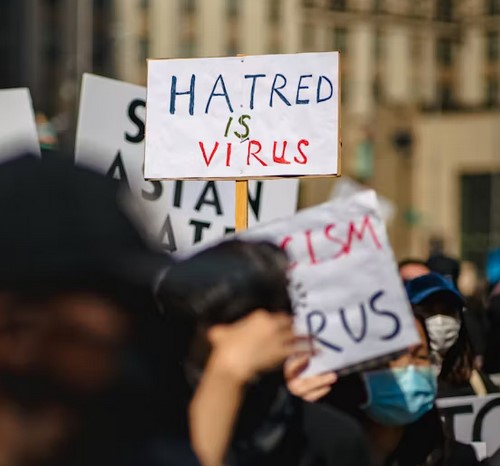Canada’s legal framework defines hate crimes as criminal activities performed against persons or things because of their race, religion, ethnic background, sexual preference, handicap or other noticeable traits. The Criminal Code of Canada includes special rules for dealing with these types of crimes. Section 318 is significant because it makes advocating genocide a crime and Section 319 deals with public incitement to hatred. Furthermore, the law in Section 718.2(a)(i) lets courts think about motivation by hate as something that can make punishment worse when giving the sentence. This guarantees harsher penalties for individuals who commit offenses based on hate. Together, these parts make up the body of law that deals with hate crimes. They show how Canada is dedicated to safeguarding at-risk communities from focused violence and prejudice.
Challenges in Prosecution
In Canada, even though there is a thorough legal structure, the process of bringing hate crimes to court encounters many difficulties. Proving the motive of the criminal beyond any reasonable doubt poses one major problem because it can be hard to establish intention clearly due to its personal interpretation. Frequently, this demands strong proofs like witness statements or digital and other kinds of documentations demonstrating an evident hate-based objective. Furthermore, people who suffered from hate crimes or saw them occur might be hesitant to speak up because they fear revenge or have doubts about the legal system. These difficulties highlight the importance of having a well-trained criminal lawyer who can handle the intricacies of hate crime situations and guarantee fairness is achieved.
High-Profile Cases
In Canada, hate crimes are not uncommon or insignificant. Many high-profile cases have brought attention to the extent and effects of these crimes. One such example is the Quebec City mosque shooting in 2017 where six men were killed and nineteen others injured; Alexandre Bissonnette was accused for this act with charges that include six counts of first degree murder as well as attempts on lives. His actions were motivated by Islamophobia, shown in his internet activities and words. He got a punishment of life in prison with no chance for parole for 40 years but this was later made smaller when he appealed. The case highlights the severe results of hate crimes and how important is the law enforcement system’s responsibility to deal with violent behavior like this one.
Legislative Reforms and Public Policy
In reaction to increasing hate crimes, Canadian lawmakers and policy creators have made efforts for better protections and responses towards these offenses. Changes that have happened lately are suggestions to add more strength into laws against online hate talk, showing acknowledgement of the increasing role of digital platforms in spreading harmful ideologies. There also were demands to upgrade data gathering and reporting systems so as to comprehend more about the range and character of hate crimes in Canada. These actions are meant to establish a stronger system for stopping and dealing with hate crimes. This involves providing assistance and fairness to communities that have been impacted by such acts of violence.
Community and Law Enforcement Efforts
Groups in the community and law enforcement are very important for stopping hate crimes. Things like making sure people know about it, police working with the community, and special training for officers play a big role in creating an atmosphere of acceptance and honor. Police groups are using methods to create trust with ignored communities so they can report hate crimes without fear, as well as getting good help from police when something happens. Working together with community groups and police is very important. It can help to solve the main reasons for hate crimes and make a better environment for all Canadians.
Tackling hate crimes is a collective effort involving the legal system, policymakers, law enforcement, and community groups. Despite progress, challenges remain in prosecuting hate crimes and ensuring justice for victims. Continuous updates to laws, better data collection, and stronger community-police relationships are essential for combating hate crimes effectively. Solving these issues will help create a nation free from fear and judgment.


